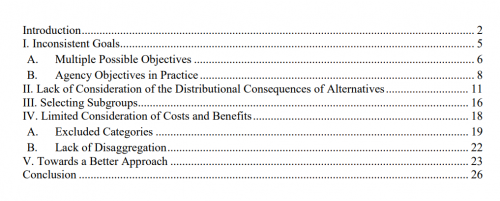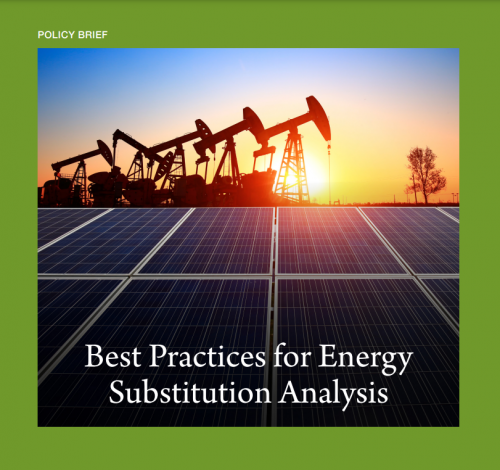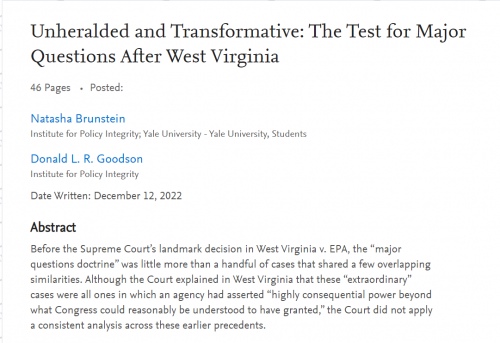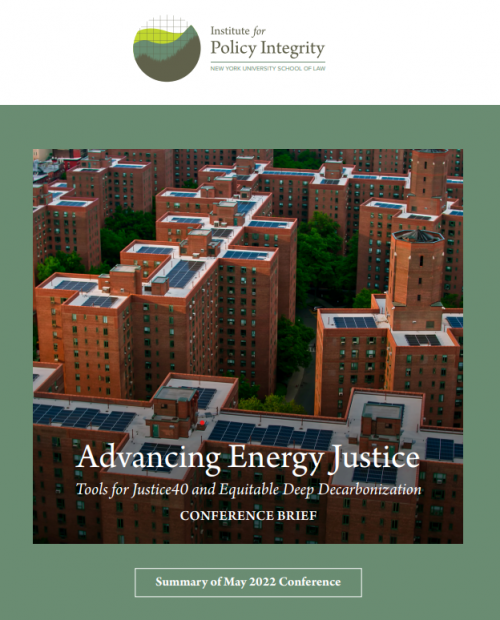The Institute for Policy Integrity produces a variety of publications. Our research reports develop in-depth research on our core issues, while our policy briefs and issue briefs provide focused analysis on more timely or particular topics. Our academic articles and working papers offer original scholarly research and analysis from established experts as well as fresh new voices.
Latest Publications
-

Just Regulation: Improving Distributional Analysis in Agency Rulemaking
Forthcoming in Ecology Law Quarterly
This Article seeks to understand the shortcomings of current agency practice and outline what agencies can do better. To do so, it examines fifteen significant proposed or final agency rules promulgated during the Biden-Harris Administration’s first eighteen months and reveals four categories of limitations. First, agencies often pursue inconsistent goals across different regulatory initiatives. Second, they do not grapple with the core issue that distributional analysis should raise: the extent to which the better distributional consequences of one alternative should trump the higher net benefits of another alternative. Third, agencies do not apply a consistent approach to defining disadvantaged groups, which makes the analysis inconsistent and unpredictable. Fourth, the distributional analysis relies on a truncated set of costs and benefits, and thus presents an incomplete picture of the consequences of regulation on disadvantaged communities.
-

Best Practices for Energy Substitution Analysis
In recent years, numerous federal agencies have made a controversial claim: that projects locking in fossil fuels over the long term will decrease aggregate greenhouse gas emissions, or that their effects on total emissions will be limited. In many of those cases, however, agencies have reached this counter-intuitive conclusion using a flawed consideration of energy substitution. This report identifies some of the recurring problems with agency analysis of energy substitution and offers best practices to apply moving forward.
-
Still Your Grandfather‘s Boiler: Estimating the Effects of the Clean Air Act‘s Grandfathering Provisions
Working paper
While vintage differentiation is a highly prominent feature of various regulations, it can induce significant biases. We study these biases in the context of New Source Review—a program within the US Clean Air Act imposing costly sulfur dioxide (SO2) abatement requirements on new boilers but not existing ones. In particular, we empirically investigate how the differential treatment of coal boilers shaped the generation landscape by affecting unit utilization, retirement, and emissions. Focusing solely on the additional SO2 emissions, we estimate annual costs of up to $65 billion associated with the vintage differentiation in New Source Review.
-

Unheralded and Transformative: The Test for Major Questions After West Virginia
Published in William and Mary Environmental Law and Policy Review
In West Virginia v. EPA, the Supreme Court expressly relied on the “major questions doctrine” for the first time in a majority opinion to hold that a federal agency lacked authority to issue a regulation. Published in the William and Mary Environmental Law and Policy Review, this paper explores whether West Virginia provides such a framework and concludes that it does. A close look at West Virginia and the alternative frameworks that parties and others urged on the Court in the West Virginia litigation also reveals a great deal about what the major questions doctrine is not.
-

Advancing Energy Justice Conference Brief
Tools for Justice40 and Equitable Deep Decarbonization
This brief summarizes some of the major points of discussion from our May 2022 conference, “Advancing Energy Justice: Tools for Justice40 and Equitable Deep Decarbonization.” The event brought together federal agency staff working to implement Justice40 with researchers to discuss how academic research can be more responsive to communities’ needs. This brief summarizes the varied views expressed by conference participants and is not intended to be a consensus or recommendation document.
